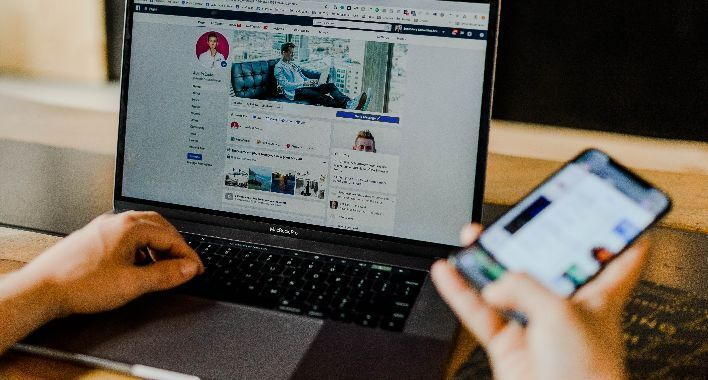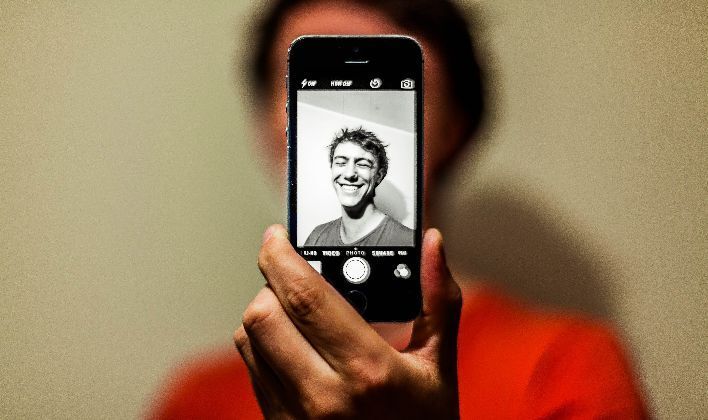An important question surrounding technology nowadays focuses on how social media affects our mental health. Social media can affect our interpersonal relationships, but also our emotions and, therefore, our sense of subjective wellbeing.
In theory, no emotion is unhealthy in itself. All emotions have a function and, when they appear, they are sending us a message about ourselves: what we need, how we interpret the world, what we lack, what we wish for…
Some emotions are associated with a pleasurable experience, which is why we traditionally call them “positive” emotions. Joy, pride, or gratitude are some of the prime examples. Other emotions are associated with an unpleasant experience and that is why we call them “negative”: fear, anger, guilt, envy, shame… Regardless of what we call them, the important thing to know is that none of them are good or bad in themselves. They all have a purpose.

The impact of social media on our self-esteem
Sometimes an unpleasant emotion appears repeatedly, and this may indicate that there is something we need to work on, identify or change. In this sense, social media is capable of awakening feelings of anger, discomfort, outrage or tension, due to the build-up of negativity and distortion of the messages. This is very common, for example, on Twitter.
Other networks focus more on visuals, such as Instagram. In this case, they show us in a very fragmented way the general lifestyle of the profiles we follow. This is why they can stimulate our envy, some kind of feeling of inadequacy or fear that we are not living the life we should be living. In fact, the term “FOMO”, which stands for “fear of missing out”, is used to denote a particular type of fear that comes from social media: the fear we have of missing out on something.
Then there are the hyper-positive and hyper-motivating messages such as those that proliferate on Facebook, which are often slogans that seriously distort reality. This type of content can make the person, instead of feeling motivated, feel frustrated or distressed for not feeling all that happiness or that ability to live life more intensely.
Negative emotions generated by social media
As we have just seen, social media can negatively affect our mental health due to different reasons. One of them is our inability to differentiate between what social media shows and what is real. That is, to contextualize and properly interpret the posts we see. If, in addition, we are already people with low self-esteem, or with a poor critical capacity, or impulsive when processing information and responding, then these negative emotions are more likely to escalate.
Many of the profiles we follow on social media generate a significant amount of envy in us. This is not necessarily a consequence consciously intended by the people who manage these profiles, although it may be so at times: ultimately we use them to show off, to induce an admiring impact on others.
With greater or lesser success, a large part of social media profiles are specifically designed to showcase something very beautiful, desirable, or interesting. Their nature is, not only to share a moment with the public but to stimulate the admiration of as many people as possible. Admiration is not a bad thing, but it can be distorted in the form of envy. This leads to generating discomfort in the viewer, who may feel that their body, their home, their work, their leisure, their clothes, any aspect of their life, are overshadowed by the glamour of what they see online.
We tend to forget that social media posts are fragments of reality that are completely decontextualized and often artificially composed to generate the admiration we are talking about. Therefore, they should not be confused with the absolute reality of the person who stars in them. No matter how much a certain profile may give that impression, nobody is sunbathing all day long, or always beautiful, or always doing interesting things. Not at all. It is important to remember: everyone gets tired, bored, feels bad, has a bad day, feels unsatisfied… Of course, that is exactly what you are not going to show on these networks.
How to regulate the relationship between social media and self-esteem
Transforming this feeling of invalidation into something constructive is possible. First, we have to identify the unpleasant emotions that trigger us and listen to how we interpret our life and our self-esteem.
After listening to them carefully, we may discover that there is nothing much to it and that we were simply misinterpreting what we were seeing or reading. In other words, we were misusing the platform, but we can quickly reassess the situation.
However, we may also discover that social media awakens issues that need to be addressed and so we “complain” in the form of frustration, envy, resentment as an excuse to what see or read on a social media platform.
If that’s the case, then we have to go dig deeper and gradually find a way to transform those emotions into more productive things: critical sense, conformity (not conformism) with our life, admiration, or inspiration.
How to create a constructive social media profile
As long as we don’t break the law or aren’t destructive, we all have the right to upload whatever we like on our profiles, no matter how absurd, artificial or childish it is. Within those limits, what we generate in others isn’t our responsibility, but of those who view it: they are the ones who “need to get it checked” if it affects them negatively.
However, when trying to motivate others to achieve their goals, the most adult thing to do is to be realistic, to use our own example and to tell the whole truth instead of just showing dazzling final results, achieved magically: the magic of our individual effort and talent, our persistence and our wanting it badly because that is always a lie. No one achieves anything important without the help and support of others, and neither do they do it from one second to another.
This attitude includes not distorting what we transmit through our social media by turning it into an idealized account, which just isn’t real. Generating credible and quality content that can awaken the admiration of others in an honest way involves taking into account some practices. So, which ones are they?
Lowering the tone, being concrete, talking about one’s own achievements but also showing the “darker” side. Of course, avoiding completely absurd and delirious messages such as “Love is power”, “Never give up”, “Attitude matters”, “Enjoy each day as if it were your last and live it intensely”. These messages, apart from not motivating anyone in a healthy way, generate enormous frustration and dissatisfaction. In other words, they are an example of how social media affects our mental health… negatively.

Responsible use of social media
Using social media responsibly to avoid these having a negative impact on our mood or self-esteem is possible.
Firstly, we should remember that social networks don’t document the reality of people’s lives. They are digital spaces where people share- visually or verbally- fragments of their life, normally hand-picked and, usually, altered through visual and verbal filters. If people think the image portrayed on social media is a truthful and accurate representation of that person’s life, then that follower is very mistaken.
Once this critical thinking has been developed, we should be selective with who we follow, because that will determine the quantity of beauty, negativity, lies, humor, useful information, useless information, etc we are going to absorb once we enter the network. Social media also has its own virus, and we need to get vaccinated against it.
Thirdly, we should be assertive with what we say and what we show. Not being impulsive or reactive, remember we are on the internet, what we say or display can have consequences and, even if we delete something it can always leave a trace.
We shouldn’t get into useless fights, wear ourselves out just because other people are full of negativity, need to vent, and get attention on social media.
At the end of the day, it’s about behaving with the same maturity, bravery, wisdom, and caution as we do in real life. If we use social media to behave in a cowardly, petty, and childish way, then we aren’t using social media properly. Instead, we are contaminating others and ourselves. If you ask yourself how social media affects our mental health, that’s precisely what you should not do.
So, that’s the theory done. If, when putting it into practice you feel the impact of social media on your self-esteem or in another area of your life is being negative and you don’t know how to manage it, seek help from a professional psychologist who can support you. Sign up to our chat and we will explain how you can start your therapy today with a psychologist who specializes in cases like yours. Now, that’s a proper network.











